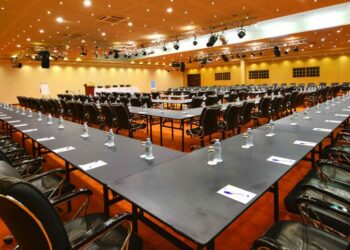By Fr. Lazar Arasu
“When elephants fight grass suffers”, is a well-known African proverb. It describes well the untold sufferings of young children caught up in war. In war situations children live in violent and terrorized environments and they witness destruction of their homes, death of parents and dear ones in violent ways. They cause trauma and they live with scars of horrors for many years to come.
Children often suffer the war crimes created by adults. But they are unable to express the trauma they undergo and the effects of war remains forever. Still their sufferings go unnoticed and overlooked.
I am engaged in social and educational work in the Palabek Refugee Settlement in northern Uganda since the inception of this settlement which houses about 36,000 refugees from South Sudan. A few days ago, after my Sunday Church Service I was taking a walk around the settlement.
Just around the little huts I saw little children busy making toys with clay. Their little game was rather pensive; they looked unusually serious. Out of curiosity I went to watch their childish play. But it was not childish as I imagined. In a simple and thought-provoking way they were letting out their memories of war.
A little boy of five years was making an image of me—the Abuna (the priest) he knows. Any member of our community who happen to see the clay image will surely say that it is me. The priest-image had a cross hanging on its neck and holding a book in hand. I was even seated on a chair. Indeed that is the way I exactly appear to the people who come to pray on Sundays.
The boy’s father was moved to tears when he saw the creative image made by his little son. He was happy that he made an image of a priest. He quickly made a pensive reflection. “Soon after the arrival in the camp my son was making guns and weapons; little later he made caterpillars, earth-movers and heavy vehicles of UNHCR and now he makes Abuna…. I am happy he is getting over his trauma; he is becoming normal.”

Children quickly imitate adult activities often without processing the act itself. But in their own little language and actions manifest what is going on in their mind and their immediate life. The little boy probably saw killings, people running for life and terror everywhere. Guns were in common sight. Soon he found himself in a refugee settlement and he saw settlement preparing to host refugees. Now he is getting used to life in the settlement. He is also able to witness better activities such as prayer and gatherings.
Events such as these calls for increased protection of children in our societies. We need to work on their socio-psychological wellbeing. According to the demographic data of South Sudan at least 46% of the population is below the age of 14; now most of them are refugees. They need education and other basic needs for their wellbeing. When they are well brought up they will become agents of peace.
Do you have a story in your community or an opinion to share with us: Email us at editorial@watchdoguganda.com









